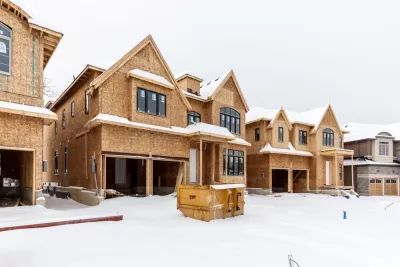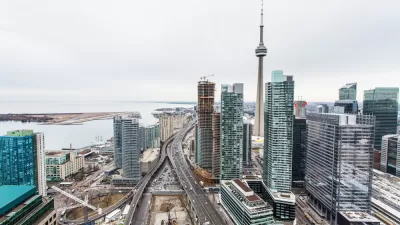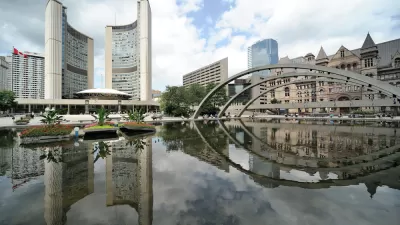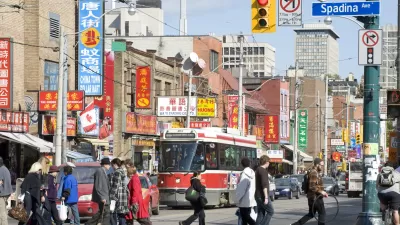Questions about how Toronto will fund Mayor John Tory's ambitious affordable housing plan will be answered by the provincial and national governments.

[Updated December 18, 2019]
Jennifer Pagliaro and Emily Mathieu report from Toronto on the funding necessary to make good on one of Mayor John Tory's signature campaign issues: 40,000 new affordable homes built over the next decade.
A new ten-year housing plan, called the HousingTO 2020-2030 Action Plan, lays out the funding sources for that ambitious target, and the city will rely on outside sources for half the money needed to build all of those affordable houses, according to Pagliaro and Mathieu. In total, the city will need an estimated $23.4 billion to meet those targets.
"But the success of what city staff called an 'aggressive housing agenda' relies heavily on the federal and provincial governments, asking them to put up $14.9 billion over 10 years. The report also fails to outline a funding plan, promising further details through the 2020 budget process," according to the article.
The announcement of the Housing Opportunities Toronto plan comes concurrently with an announcement that Mayor Tory would pursue increased levies on property to help fund affordable housing and transit. As noted in the source article, "the city currently provides land and financial incentives to developers through two housing programs designed under Tory’s administration, Open Door and Housing Now."
[Update: The current name of Toronto's housing plan has been corrected. The current plan is called the "HousingTO 2020-2030 Action Plan." The city's previous ten-year plan was called the "Housing Opportunities Toronto: Affordable Housing Action Plan 2010-2020."]
FULL STORY: City’s new housing plan calls on province, feds to cover half of 40,000 affordable units

Maui's Vacation Rental Debate Turns Ugly
Verbal attacks, misinformation campaigns and fistfights plague a high-stakes debate to convert thousands of vacation rentals into long-term housing.

Planetizen Federal Action Tracker
A weekly monitor of how Trump’s orders and actions are impacting planners and planning in America.

San Francisco Suspends Traffic Calming Amidst Record Deaths
Citing “a challenging fiscal landscape,” the city will cease the program on the heels of 42 traffic deaths, including 24 pedestrians.

Defunct Pittsburgh Power Plant to Become Residential Tower
A decommissioned steam heat plant will be redeveloped into almost 100 affordable housing units.

Trump Prompts Restructuring of Transportation Research Board in “Unprecedented Overreach”
The TRB has eliminated more than half of its committees including those focused on climate, equity, and cities.

Amtrak Rolls Out New Orleans to Alabama “Mardi Gras” Train
The new service will operate morning and evening departures between Mobile and New Orleans.
Urban Design for Planners 1: Software Tools
This six-course series explores essential urban design concepts using open source software and equips planners with the tools they need to participate fully in the urban design process.
Planning for Universal Design
Learn the tools for implementing Universal Design in planning regulations.
Heyer Gruel & Associates PA
JM Goldson LLC
Custer County Colorado
City of Camden Redevelopment Agency
City of Astoria
Transportation Research & Education Center (TREC) at Portland State University
Jefferson Parish Government
Camden Redevelopment Agency
City of Claremont





























